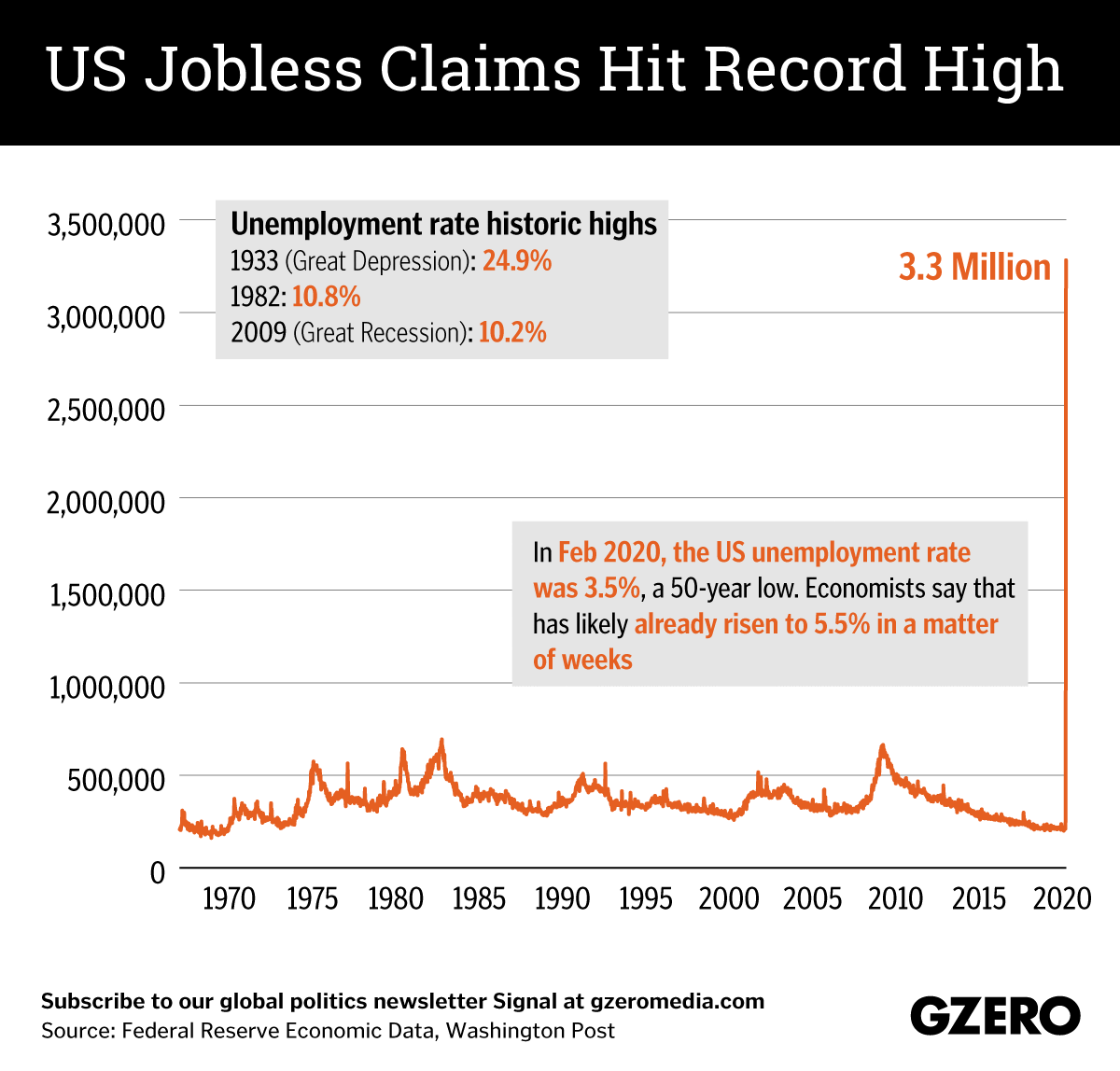The Graphic Truth: US jobless claims hit record high
March 27, 2020
With large parts of the American economy shuttered because of coronavirus-related lockdowns, the number of people filing jobless claims in the US last week exceeded 3.2 million, by far the highest number on record. Here's a look at the historical context. The surge in jobless claims, which may be an undercount, is sure to cause a spike in the unemployment rate (which tells you the percent of work-ready people who are looking for a job). At last reading in February, unemployment was at a 50-year low of 3.5 percent. Economists warn that it could reach 5.5 percent in the near term. Even that would be far lower than the jobless rates recorded during previous economic crises such as the Great Depression or the Great Recession. Have a look.
